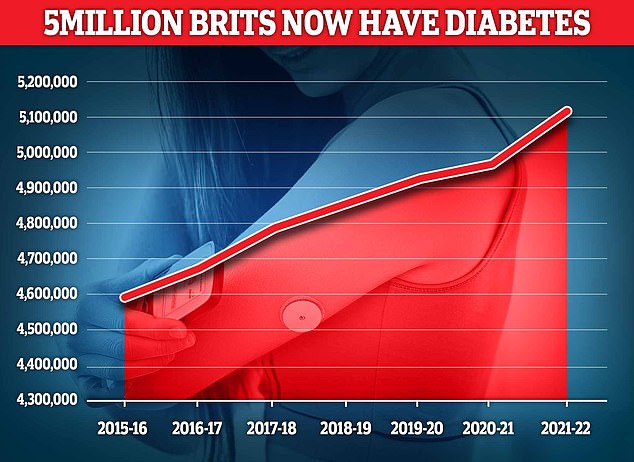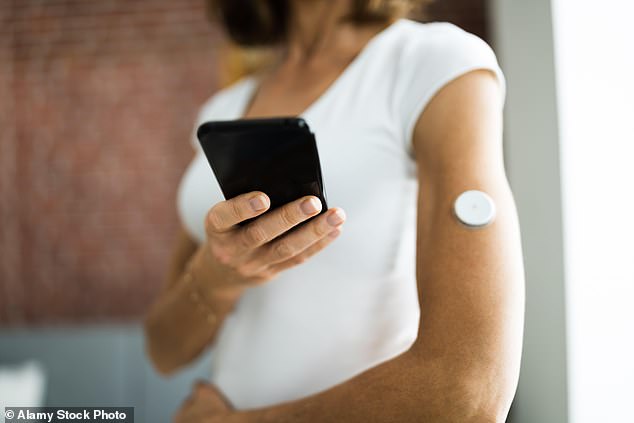People could be diagnosed with diabetes using little more than a voice recording from their phone, promising new research suggests.
Experts have long feared that millions of Britons suffering from the condition – which causes blood sugar levels to become too high – are going undiagnosed.
But audio samples of patients’ voices lasting just 25 seconds, along with basic health data such as age, sex, height and BMI, could determine whether someone is diabetic.
The scientists, who tested the AI model on more than 600 adults, found it was accurate in more than two-thirds of cases.
Charities and experts welcomed the “groundbreaking” tool but warned that more research was needed.
Experts have long feared that millions of Britons suffering from the condition – which causes blood sugar levels to be too high – are going undiagnosed. But audio samples of just 25 seconds, along with basic health data such as age, sex, height and BMI, could determine whether someone is diabetic.

According to the latest UK figures, almost 4.3 million people were living with diabetes in 2021/22. And a further 850,000 people have diabetes and don’t know it at all, which is worrying because untreated type 2 diabetes can lead to complications such as heart disease and stroke.
Abir Elbeji, a digital health expert at the Luxembourg Institute of Health and lead author of the study, said: ‘The most current methods of detecting type 2 diabetes They are time-consuming, invasive, require laboratory work, and are expensive.
‘Combining AI with voice technology has the potential to make testing more accessible by removing these barriers.
‘This study is the first step toward using voice analytics as a first-line, highly scalable type 2 diabetes screening strategy.’
In the UK, more than 90 per cent of adults with diabetes have type 2, but many go years without realising it because symptoms can be general or non-existent.
To detect this condition, people usually need a visit to their GP and blood and urine tests.
In the study, researchers analyzed 607 recordings to identify acoustic features that differentiated non-diabetics from diabetics.
Everyone was asked to read sentences provided directly from their phone or laptop.
Using signal processing, they were able to detect subtle changes in pitch, timbre, and intensity that are imperceptible to the human ear.
One advanced AI technique captured up to 6,000 detailed vocal features. Another focused on 1,024 key features.
The model had an accuracy rate of 66 percent among women and 71 percent among men.
The model performed even better in women aged 60 or older and in people with high blood pressure, the researchers added.
Responding to the findings, Dr Lucy Chambers, head of research at Diabetes UK, said: ‘Getting a prompt and accurate diagnosis is crucial to preventing the serious and potentially life-threatening complications of type 2 diabetes.
‘Unfortunately, symptoms can be easily overlooked and around 1.2 million people in the UK are currently living with undiagnosed type 2 diabetes.
‘Using AI to develop convenient and cost-effective type 2 diabetes screening methods will help identify more people who need treatment and support, ultimately improving their quality of life and reducing their risk of long-term diabetes complications.
‘We look forward to continuing to research innovative AI-based voice analysis tools for diabetes detection.’
The research will be presented tomorrow at the European Association for the Study of Diabetes (EASD) Annual Meeting in Madrid.
Type 2 diabetes occurs when the body does not produce enough insulin or the insulin it produces does not work properly.
This hormone is necessary to reduce blood sugar levels.
Having high blood sugar levels over time can cause heart attacks and strokes, as well as problems with your eyes, kidneys, and feet.
Patients may need to review their diet, take daily medication and undergo regular check-ups.
Symptoms of this condition, which is diagnosed by a blood test, include excessive thirst, fatigue and the need to urinate more frequently, but many people have no symptoms.
Nearly 4.3 million people were living with diabetes in 2021/22, according to the latest UK figures.
About 90 percent of diabetes cases are type 2 diabetes, which is linked to obesity and usually diagnosed in middle age, rather than type 1 diabetes, a genetic condition that is usually identified early in life.


